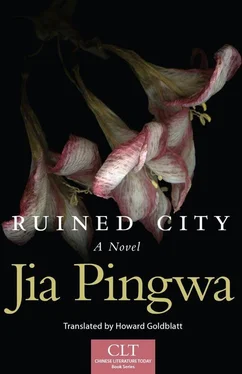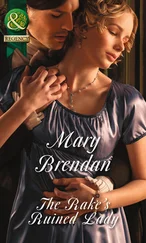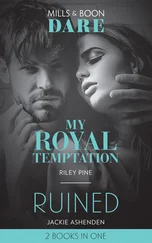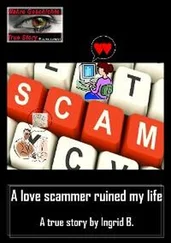If Ruined City is neither a modern-day Golden Lotus , a voyeuristic and misogynistic (as some have claimed) exposé of late twentieth-century China, nor a parody, what then is it? Jia’s editor of the first edition of the novel, Tian Zhenying, has said succinctly that it “depicts the fall of a generation of intellectuals and the societal causes behind the decline of that society.” This view is representative of many domestic critics and scholars, who see it as a portrait of the unhealthy ideological and mental state of intellectuals at the end of the twentieth century, a society in chaos, even a prophetic tale for all of China.
At the risk of overstating a nonrealist reading of Ruined City , however, I find it instructive to look at the characters who populate the novel. While one generally searches in vain for in-depth psychological probing in contemporary Chinese fiction, here the absence is exaggerated. Most if not all of the characters in Ruined City come across as unsavory stock figures who demand not to be taken at face value; frequently given to surprising bouts of weeping, apostrophic outbursts, unnatural dialogue, and irrational actions, they represent types more than individuated characters. Beyond that, lapses into fantasy, including a revocation of certain scientific principles, underscore the absurdities the author sees in contemporary society. If I am right, then our reading of the novel as one that tends to mock the genre and the state of contemporary urban society, at least to some degree, gains credence. I will leave final judgment on this score to the readers of the present translation.
One final note about names: Zhuang Zhidie’s name has an obvious link to ancient China. Zhuang is the surname of the Warring States Taoist Zhuang-zi (fourth century BCE). One of the philosopher’s most famous anecdotes is that he awoke one day after dreaming that he was a butterfly (hu-die; thus the — die in Zhidie) and wondered if he might actually be a butterfly dreaming that he was Zhuang-zi. The sly insertion of some of the philosopher’s recorded aphorisms seals the deal. Beyond that, the “Zhou” in the name of the novel’s second most important character, Zhou Min, is part of Zhuang-zi’s formal name — Zhuang Zhou. While this may hint at an illusory quality to the novel in general, it may be best simply to attribute the choice to the author’s fondness for Taoist traditions. The rest of the dramatis personae’s names may well have been fashioned by Jia for allusive connections, but determining that would require a treatise of sorts, I’m afraid, probably with meager results.
In the preparation of this translation, I have suppressed the impulse to add a more modern touch to the narrative, simultaneously refraining from allowing it to seem quaint. Up-to-date twenty-first-century terminology or archaic terms and expressions would have rung hollow in a twentieth-century novel and might have further shattered the illusion that the reader is dealing with a Chinese author without intervention.
Throughout the translation process, I was rewarded with detailed responses to my many queries (I don’t play mahjong, I’ve never had my fortune read by a Taoist, and I am unfamiliar with the specialized idiom of northern Shaanxi) from the author and one or more of his friends and associates. As always, I also am indebted to the wisdom and support of my wife, Sylvia.
HOWARD GOLDBLATT
Ah-canone of Zhuang’s lovers Ah-lanAh-can’s sister Aunty Liuowner of the cow Bai Yuzhua judge; consultant on the defamation lawsuit Dai Shangtiana book reviewer at the Writers’ Association Dazhengthe mayor’s son; Liu Yue’s eventual husband Gong Jingyuana calligrapher; one of the “Famous Four”; the father of Gong Xiaoyi Gong Xiaoyian opium addict; son of Gong Jingyuan Gou Dahaian editor at Xijing Magazine ; a defendant in the defamation lawsuit Hong Jiangthe manager of Niu Yueqing’s Taibai Bookstore Huang Defuan advisor to the mayor Huang Hongbaothe owner of the 101 Pesticide Plant Huiminga nun at the Yunhuang Temple Jing XueyinZhuang Zhidie’s former love interest; plaintiff in the defamation lawsuit Li Hongwena reviewer at Xijing Magazine ; a defendant in the defamation lawsuit Liu YueZhuang and Niu Yueqing’s maid; his lover; later the wife of Dazheng Meng Jinson of Meng Yunfang Meng YunfangZhuang’s best friend Niu YueqingZhuang Zhidie’s wife; owner of the Taibai Bookstore Ruan Zhifeione of the “Famous Four”; head of the philharmonic orchestra Sima Gongthe judge in the defamation trial Tang Wan’erZhuang’s primary lover; Zhou Min’s girlfriend Wang Ximiana painter; one of the “Famous Four” Xia JieMeng Yunfang’s wife Zhao Jingwua friend of Zhuang’s; Liu Yue’s first fiancé Zhong Weixianeditor-in-chief of Xijing Magazine ; a defendant in the defamation lawsuit Zhou Minauthor of the article at the center of the defamation lawsuit; a defendant in the lawsuit; Tang Wan’er’s boyfriend Zhuang Zhidiethe main character in the novel; a famous writer; one of the “Famous Four”
SOMETHING STRANGE OCCURRED in the city of Xijing in the 1980s: When two devoted friends in search of a little recreation visited the tomb of the Tang concubine Yang Yuhuan, known as Guifei, the Imperial Consort, they wondered why so many visitors were scooping up gravesite dirt. They were told that since Guifei was known as an ageless beauty, if they took dirt from her grave and mixed it into their potted plants, the flowers would grow bright and beautiful. So the friends scooped up handfuls of dirt, took it home in their clothing, put it in a black earthenware pot they had kept for years, and left it there until they could purchase some fine flower seeds. Imagine their surprise when green sprouts broke through the surface a few days later, and within a month had spurted almost magically into a flourishing growth the likes of which no one had ever seen. They carried it into town to ask an old flower expert at the Yunhuang Temple what they had. He did not know. It so happened that Abbot Zhixiang was passing by at that moment, so they asked him. He just shook his head.
One of the men said, “I often hear people say that the abbot can divine the future by using the Eight Taoist Trigrams. Can you tell us how many shoots this flower will produce?”
The abbot told the second man to select a word.
Since he was holding gardening shears, he casually tossed off the word “ear.”
The abbot said, “This is a unique flower that will bloom on four stems, but it will be short-lived.”
The plant grew as predicted: the flowers looked a bit like peonies and a bit like roses, and of the four stems, one was red, one was yellow, one was white, one was purple, and all four exuded exquisite charm. Once word got out, people flocked to admire the flowers, and they left sighing in amazement. The friends were understandably pleased, one especially, who so cherished the rare plant that he placed it on his desk, as if to enshrine it, assiduously watering it and adding plant food, never stinting in his attentions. But after an evening of heavy drinking, he got up in the middle of the night and, feeling a need to water the plant, carelessly picked up a hot water bottle and killed it. Devastated by what he had done, he smashed the pot, after which he fell ill and was sick for a month.
Читать дальше


![Matthew Vincent - [you] Ruined It for Everyone!](/books/216429/matthew-vincent-you-ruined-it-for-everyone-thumb.webp)









